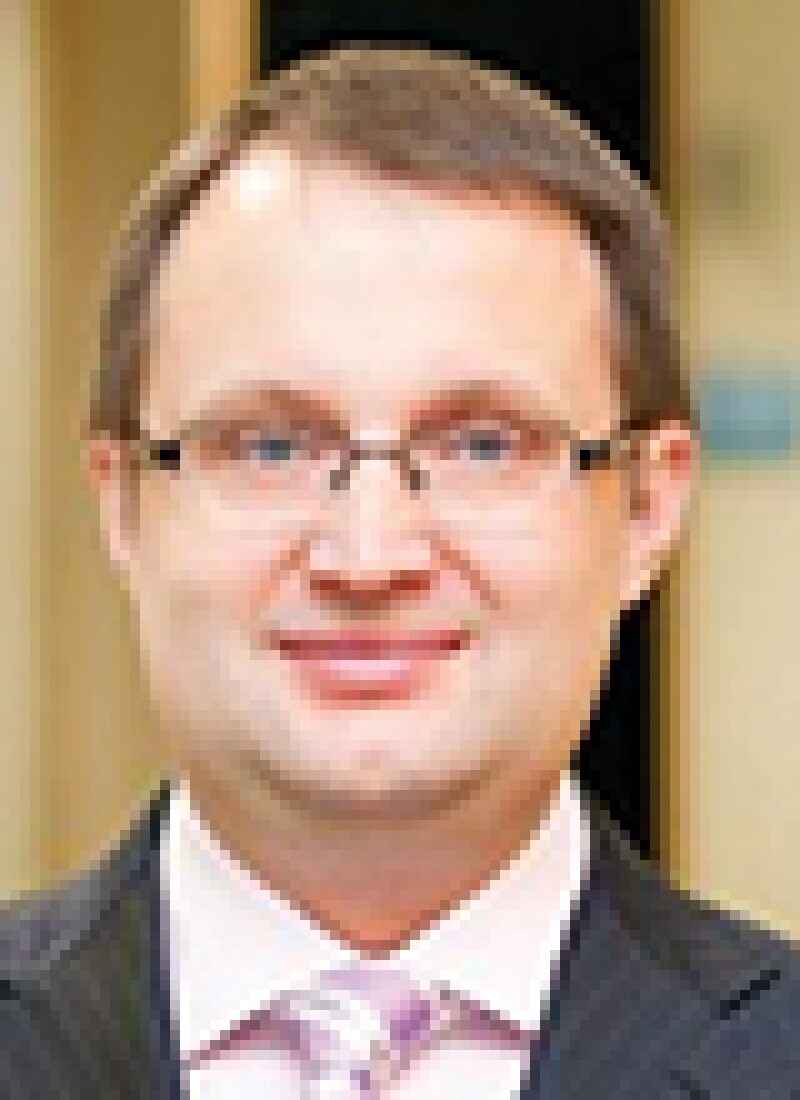Transfer pricing (TP) rules were implemented in the Tax Code of the Russian Federation approximately seven years ago. Since then, Russian tax authorities have initiated more than 30 TP audits, almost all of them related to export commodity transactions where the tax authorities challenged the taxpayers' pricing by applying the comparable uncontrolled price (CUP) method. In most cases, the taxpayers agreed to pay additional taxes and did not initiate judicial proceedings. As a result, the number of pure TP court cases is limited. However, there are three TP court cases (discussed below) that reveal some peculiar details of the Russian tax authorities' approach to the application of the CUP method.
Three court cases
ZAO NK Dulisma
In 2012, ZAO NK Dulisma, a Russian oil and gas (O&G) company, sold crude oil to an unrelated Hong Kong-based trader. In accordance with the Russian Tax Code, transactions with unrelated parties may be deemed controlled transactions for TP purposes, provided certain conditions are met. The Russian Federal Tax Service (FTS) audited this transaction and discovered a price understatement when using the CUP method, based on prices quoted by Platts, the pricing agency. The court ruled in favour of the tax authorities, confirming that the application of the CUP method and the use of Platts data was justified (ZAO NK Dulisma v. Federal Tax Service, No. A40-123426/16-140-1066).
PJSC Uralkali
In 2012, PJSC Uralkali, a Russian fertilising company, exported potash fertilisers through a related Swiss trader. Uralkali prepared TP documentation to substantiate the pricing in those controlled transactions using the Russian version of the transactional net margin method (TNMM) and the Swiss trader as the tested party.
The FTS disagreed with the selection of the TNMM, and instead applied the CUP method based on price quotations published by Argus Media pricing agency. The case was heard by different levels of the Russian court system. The most recent decision was in favour of the FTS, but the decision is not final yet and Uralkali has opportunities to appeal the decision (PJSC Uralkali v. Russian FTS, No. A40-29025/2017).
PJSC Tolyattiazot
In 2012, PJSC Tolyattiazot, a Russian chemical company, was involved in transactions with a Swiss company for the sale of ammonia supplies. The taxpayer treated its counterparty as an unrelated party. However, the FTS provided evidence in court (partially based on a related criminal case against Tolyattiazot officials) that Tolyattiazot and its contractor are affiliated through nominal ownership and trust, and share custody arrangements.
This case is quite similar to the Uralkali case, as the FTS disagreed with the taxpayer's selection of TNMM and applied the CUP method based on Argus Media prices. The case was heard by two court levels, and both supported the FTS's position. The current decision is not final, but the taxpayer's chances of overturning the decision on appeal seem slim (PJSC Tolyattiazot v. FTS, No. A55-1621/2018 and No. A55-1618/2018).
Application of the CUP method in Russia
Under Russian TP rules, a transaction between unrelated parties may be treated as a controlled transaction if it meets the requirements of Article 105.14 of the Russian Tax Code, which states that cross-border transactions of goods traded on commodity markets or cross-border transactions with entities resident in a low-tax jurisdiction may be deemed controlled transactions, if the transaction amount exceeds RUB 60 million ($900,000).
Taxpayers should thus be aware that the prices of transactions involving exchange-traded commodities could be audited from a TP perspective, as seen in the Dulisma case. In fact, Dulisma was the first case in which the Russian tax authorities applied the current TP rules, and the court confirmed their right to question the prices in an unrelated-party transaction.
Selection of the CUP method
Russian legislation provides a hierarchy of TP methods whereby the CUP method has priority over any other, except pure distribution transactions (in those cases, the re-sale price method has priority over the CUP method). However, unlike the OECD's Transfer Pricing Guidelines for Multinational Enterprises and Tax Administrations (July 2017), the Russian Tax Code does not contain clearly stated provisions regarding the product comparability requirements for the application of the CUP method.
The Russian tax authorities are aware of the specifics of Russia's TP rules, and are ready to apply them in their favour. As a result, FTS would most likely apply the CUP method to any transaction in which data for such application is available. However, according to Russian law, before applying the CUP method, the Russian tax authorities must prove that the method selected by the taxpayer in TP documentation was applied incorrectly.
In the cases mentioned above, the FTS easily overcame this obstacle by adopting the following approaches:
Comparability: the FTS meticulously reviewed the set of comparable companies the taxpayer relied on, paying particular attention to the slightest functional or product non-comparability. As a result, the tax authorities concluded that none of the selected companies were really comparable; and
Profitability: in the Uralkali and Tolyattiazog cases, the FTS also claimed that overall re-seller profitability could not be used as a proper profit level indicator for TNMM, because in both cases, traders partially re-sold the products to related parties. The taxpayer's argument that sales to related parties were immaterial was disregarded in the Uralkali case. In the Tolyattiazot case, the FTS claimed that information regarding trader's profitability provided by the Swiss tax authorities was not sufficient, and even insisted on a calculation of transactional profitability for each delivery.
Information used for the CUP method
The Russian tax authorities rely heavily on pricing information published by pricing agencies such as Argus Media, Platts, and Reuters, and pay little attention to the comparability of the data.
For example, in the Uralkali case, the FTS compared various types of potash fertilisers that had different technical characteristics with a single quotation published by Argus Media (the FTS does not challenge the quality of the information published by the pricing agencies). The quotation applied in the Uralkali case as an external source of information for the application of the CUP method was stable for more than a year, whereas the prices in third-party transactions demonstrated certain volatility during the same time period.
Timing issues
In practice, the most important timing issue is determining what period of time should be used for the calculation of an arm's-length price range. The Russian Tax Code stipulates that information regarding comparable prices should be taken on the specific date preceding the transaction date, or for the analysed time period.
Unfortunately, no clarifications are available on how to determine this time period. In the absence of clarity in the Russian legislation, the FTS referred to the OECD TP guidelines in the Tolyattiazot case (specifically, Part II of Chapter II, Section B, on the CUP method) to support its position regarding the pricing date.
Comparability adjustments
The Russian Tax Code does not provide a detailed description of the adjustments that could be made to eliminate the differences between controlled and un-controlled comparable transactions (see Article 105.5 of the Russian Tax Code). Therefore, the application of adjustments is one of the main issues for discussion between the FTS and taxpayers during audit procedures and court hearings. The following types of non-comparability are usually discussed.
Logistical non-comparability
Controlled transactions are often concluded on different shipping terms than un-controlled transactions (for which there are publicly available price quotes). Therefore, railway costs, freight charges, reloading costs, among others, should be taken into account in establishing comparability. The tax authorities usually do not dispute the need to perform such an adjustment, but they may challenge the way a specific adjustment is made.
Functional non-comparability
Controlled transactions are usually concluded between commodity manufacturers and trading entities, whereas un-controlled transactions often involve two trading entities, which means that the functional and risk profiles of the parties in controlled transactions and those in potentially comparable transactions could be significantly different.
Many taxpayers believe that the impact on prices of certain differences in the functional profile (such as the non-performance of the trading function by a commodity producer) should be eliminated by adjustment for arm's-length trading margin.
However, the FTS usually disagrees with this type of adjustment, claiming that a function and risks analysis of the parties is more relevant for the TNMM, but that prices on commodity markets used to apply the CUP method are influenced only by interactions between supply and demand, not by the parties' functional profiles.
Application of the CUP method
Russian and foreign multinationals involved in commodity trading transactions should take into consideration the aforementioned details on the application of the CUP method when developing their pricing strategy and assessing their TP risks.
© 2019. For information, contact Deloitte Touche Tohmatsu Limited.This communication contains general information only, and none of Deloitte Touche Tohmatsu Limited, its member firms or their related entities (collectively, the "Deloitte network") is, by means of this communication, rendering professional advice or services. Before making any decision or taking any action that may affect your finances or your business, you should consult a qualified professional adviser. No entity in the Deloitte network shall be responsible for any loss whatsoever sustained by any person who relies on this communication.
Dmitry Kulakov |
|
|---|---|

|
Partner Deloitte CIS Tel: +7 (495) 787 06 00 Dmitry Kulakov is a partner with the tax and legal department of Deloitte CIS, and the head of the Russian transfer pricing practice. He has more than 20 years of experience in tax consulting covering a variety of Russian and international tax issues. Dmitry led a number of projects associated with the development of TP methodologies in Russia for large multinational and domestic companies in various industries such as E&R, consumer products, retail, manufacturing and many others. The projects involved preparation of TP documentation in accordance with the Russian TP rules, advisory work on the development of optimal TP strategies, and various operational TP matters. Dmitry has extensive experience providing advice outside the TP area related to complex tax issues, structuring inbound investments in Russia and the CIS. He was an integral part of a number of M&A projects in the tax department, assisting both buyers and sellers in large and complex transactions in telecommunications and media, consumer goods, retail, manufacturing and other industries. |
Alexey Sobchuk |
|
|---|---|

|
Director Deloitte CIS Tel: +7 (495) 787 06 00 Alexey Sobchuk is a director in the transfer pricing group at Deloitte CIS, with 11 years of experience in TP consulting. Alexey has provided various TP consulting services to leading Russian and international companies. He was engaged to develop financial and pricing models, TP policies, documentation, defence files, master files, and country-by-country reports. Alexey previously worked as deputy head of the TP and international cooperation department of the Russian Federal Tax Service. He coordinated the practical implementation of the new TP legislation in Russia, and represented the Federal Tax Service in negotiations with taxpayers for advance pricing agreements while participating in negotiations with foreign tax authorities. Alexey also was a member of various working groups established by the Federal Tax Service jointly with other government agencies (the Ministry of Finance, the Federal Customs Service, Rospatent) to discuss issues related to TP. |
Dmitry Masharov |
|
|---|---|

|
Senior manager Deloitte CIS Tel: +7 (495) 787 06 00 Dmitry Masharov is a senior manager at Deloitte CIS's transfer pricing group. He has been with Deloitte since 2008. During that time he has participated in various TP projects, tax audits, due diligence projects and tax consulting for Russian and foreign companies on various tax and accounting issues. Dmitry has been involved in TP projects such as the development of a TP policy for all types of controlled transactions for large industrial and mining companies, preparation of TP documentation for different types of transactions (sale of goods, provision of services, loans), analysis of pricing methodologies, analysis of potential tax risks, development of TP methodologies, application of adjustments, preparation of advance pricing agreements, and adaptation of TP documentation developed by foreign companies for Russian entities of multinational enterprise groups. |
Anastasia Kopysova |
|
|---|---|

|
Senior consultant Deloitte CIS Tel: +7 (495) 787 06 00 Anastasia Kopysova is a senior consultant in the transfer pricing group of Deloitte CIS based in Moscow. Anastasia specialises in TP analysis and has participated in large TP engagements for Russian and international companies in the energy & resources, and consumer & industrial products industries. She has experience preparing TP documentation according to both the Russian TP rules and the OECD guidance, conducting economic analysis for various types of transactions and developing TP methodologies for clients. |














